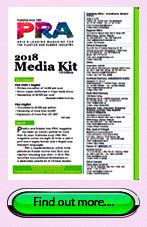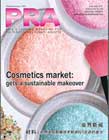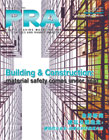PRA Chinese
Rubber Journal Asia Injection Moulding Asia Energy, Oil & Gas Asia
VISIT OUR OTHER SITES:
PRA Chinese
Rubber Journal Asia
Injection Moulding Asia
Energy, Oil & Gas Asia
Plant start-ups: Total Corbion’s PLA pilot plant in Thailand; Wacker’s new lab in Moscow
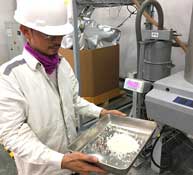
Total Corbion PLA, global technology leader in Poly Lactic Acid (PLA) and lactide monomers, has started up its 1 kilotonne/year PLA pilot plant in Rayong, Thailand. The pilot plant started up in December 2017 and over the past two months has produced a broad range of Luminy PLA resins.
In addition, the pilot plant is being used to train operators and to get a head start on the required product certifications and regulatory needs. In future, Total Corbion PLA will also be able to use the pilot plant for product development.
With the start-up of the pilot plant, Total Corbion PLA is gearing up to become a world scale producer of PLA: on the same site, Total Corbion PLA’s Lactide plant is being expanded to 100 kilotonnes/year and a 75 kilotonnes/year PLA polymerization plant is under construction. The firm says that the PLA polymerisation plant is on track to deliver its first commercial quantities of PLA during the second half of 2018.
Upon completion, Total Corbion PLA’s production facility in Thailand will produce a broad portfolio of Luminy PLA neat resins: from standard PLA to innovative, high heat resistant PLA, to satisfy customer requirements for a wide range of markets from packaging to consumer goods, fibres and automotive.
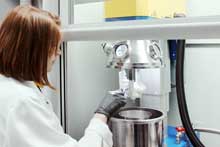
Meanwhile in other news, German chemicals company Wacker has enhanced its presence in Russia by expanding the service portfolio offered by its technical centre in Moscow. Wacker is integrating a new dedicated laboratory for adhesives and sealants based on silane-terminated polyethers (hybrid polymers) used mostly in the construction industry. Furthermore, the centre’s existing laboratories for dry-mix-mortar, paints, coatings and construction-silicones applications has been accredited by the Russian Federal Service for Accreditation as an official test lab: WACKER can thus provide an independent test protocol as a basis for officially recognized quality certificates. Thanks to this expansion and accreditation, WACKER is able to meet the needs of its local customers, who are increasingly demanding high-quality silicone and polymer products.
Being extremely versatile, modern sealants and adhesives are used in an increasingly broad range of applications – from the construction industry through to transportation and energy. The Moscow technical center’s new laboratory helps WACKER support the enhancement of these applications. “The market for sealants and adhesives in Russia has huge potential, which was the main factor behind our decision to open the new facility. For us, the most important reason is to provide customers with technical support as fast as possible while keeping local market needs in mind,” said Dr. Alexander Serov, Managing Director of WACKER Russia, during the opening ceremony.
WACKER’s new lab facility offers the possibility of testing and developing sophisticated formulations based on local fillers and additives. Modern planetary and asymmetric centrifugal mixers make it possible to prepare adhesives and sealants of varying viscosity and thixotropy and to use a rheometer to characterize them. Thanks to the state-of-the-art laboratory equipment, it is also possible to determine the products’ tensile strength, adhesion, shear strength and shore hardness. What’s more, the Moscow technical center has a climate room for testing samples under standard conditions to provide repeatable results. All tests for liquid and cured adhesives and sealants can now be conducted in accordance with international standards. The new lab enables WACKER to identify and respond to regional trends and developments at an early stage, offering its customers tailor-made local solutions.
The opening of the new facility is complemented by the fact that the Moscow technical center’s existing dry-mix-mortar, paints, coatings and construction-silicones laboratories have been accredited by the Russian Federal Service for Accreditation as official test labs in accordance with GOST ISO / MEK 17025 . This means that WACKER will be able to issue a Russian state-approved protocol on the results of product tests, which will allow customers to apply for quality certificates for their products. These certificates for tile adhesives, paints and coatings, self-levelling compounds or renders are increasingly required in both public and private construction projects. “This accreditation enables us to add value for our customers. It provides them with independent test results that prove the quality of products modified with VINNAPAS® and SILRES®,” said Alexander Serov. WACKER is thus making an important contribution to the distribution and advancement of modern, high-quality building materials.
Subscribe to Get the Latest Updates from PRA Please click here
(PRA)Copyright (c) 2018 www.plasticsandrubberasia.com. All rights reserved.

